By Samuel Macagba III
From September 27 to 29, 2017, eight members of the Basic Education cluster of Xavier Ateneo attended the 76th Catholic Education Association of the Philippines (CEAP) national confab at SMX Convention Center - Lanang in Davao City.
The XU contingent included Senior High School principal Dr Rogelio Gawahan, Junior High School principal Dr Pamela Pajente, JHS assistant principal for formation Samuel Macagba III, JHS Christian Humanism department chairperson Catherine Lozano, and members Romer Aranas and Bonifacio Tariga. Also present were JHS Science department chairperson and incoming asst principal for administration Engr Bregida Hibaya and XU Grade School (Macasandig) prefect Roberto Golobio.
This year's CEAP focused on the theme “Communo: Building and Sustaining Ecclesial Communities of Life,” highlighting the coming-together of all Catholic educational institutions as a community to work towards building peace.
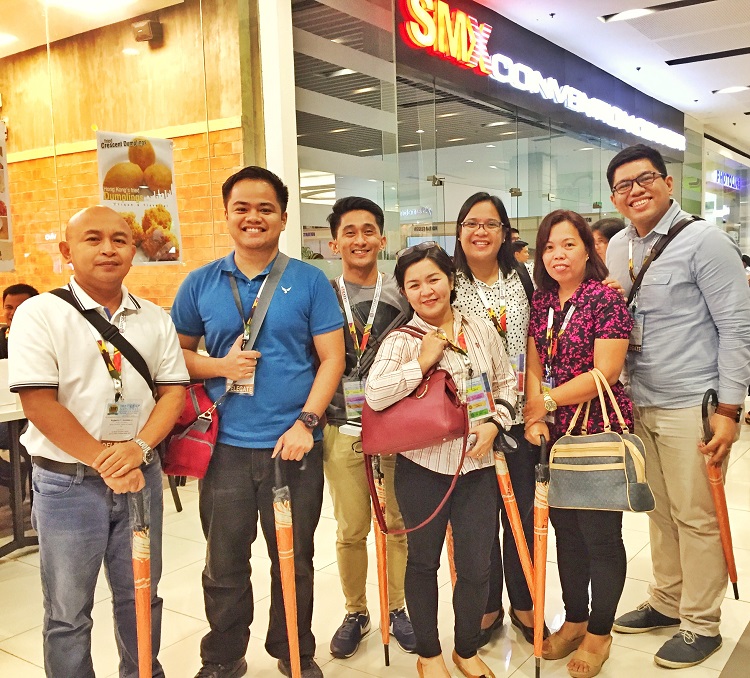
XAVIER ATENEO DELEGATION. Basic Education participants of the 76th CEAP national convention: (L-R) Golobio, Aranas, Tariga, Lozano, Dr Pajente, Engr Hibaya, and Macagba). Contributed photo.
In the opening mass celebrated by Davao Archbishop Romulo Geolina Valles DD (also the president-elect of the Catholic Bishops' Conference of the Philippines), he provided contextual challenges of this year's gathering and emphasized on the state of the Christian community being "tempted, adjusted, and watered down" in the name of "practical relevance or perceived strategic considerations."
Romulo urged all CEAP schools to build a strong force of teacher-apostles who can build ecclesial communities rather than being just mere purveyors of knowledge, whom he likened as "salespersons."
“[The] Kingdom of God is not marketed,” he said. “As messengers, we are controlled by the message and not the other way around."
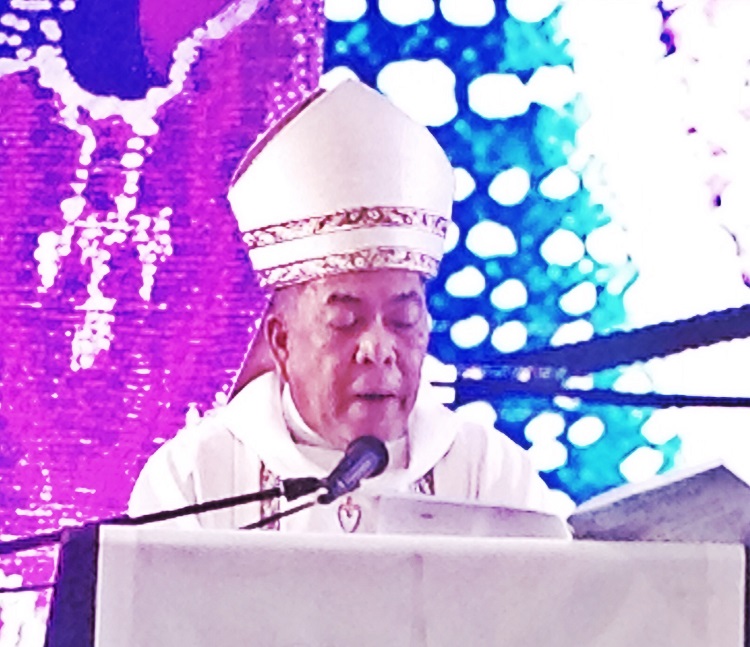
OPENING MASS. Davao Archbishop Romulo Geolina Valles DD delivers the homily during the opening mass of the 76th CEAP national convention. Screencapped from the event's official video.
Fr Joel Tabora SJ, re-elected president of CEAP, said that the gathering of schools has been deeply perplexed by the current situation of our country. While the war in Mindanao may have a religious dimension, "it is more rooted in social injustice."
The convergence of CEAP schools to renew their commitment to the vision of the association was guided by the principles of “Communo.” As Tabora said: "We come to discern how we as Catholic schools make an appropriate response. Our struggles are not for ourselves alone.”
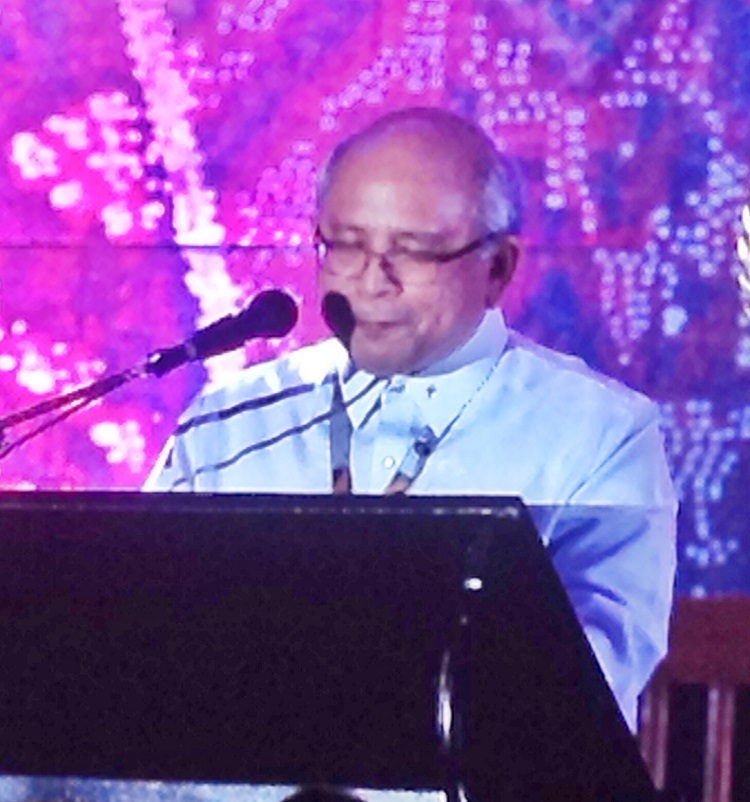
TABORA. CEAP president Fr Joel Tabora SJ welcomes the participants to the convention. Screencapped from the event's official video.
In the keynote address delivered of Cardinal Orlando Quevedo of Cotabato, he emphasized the crucial role of Christian communities in the rehabilitation of Marawi. In the cry for peace, he challenged the participants to "Duyog Marawi” (Accompany Marawi).
He added that there is a need to see the many issues of war and peace through the eyes of the members of the Bangsamoro community. To this end, schools must continue to build communities through the proclamation of the Word of God and to go out to the peripheries. For Quevedo, this can be achieved through understanding the realities of others, strengthen the need for interreligious dialogue, and promote the culture of peace.
However, according to lawyer Laisa Masuhod Alamia, ARMM executive secretary and another keynote speaker of the said convention, the culture of peace takes its roots with "what is inside of us — connection, empathy, and love." But one cannot reach these ideals without being "vulnerable."
Alamia said that our country has lost the ability to be vulnerable primarily because of the fear of experiencing pain and discomfort. As a consequence, our nation has become "close-minded and numb." For her, this picture has given birth to violent extremism in Mindanao.
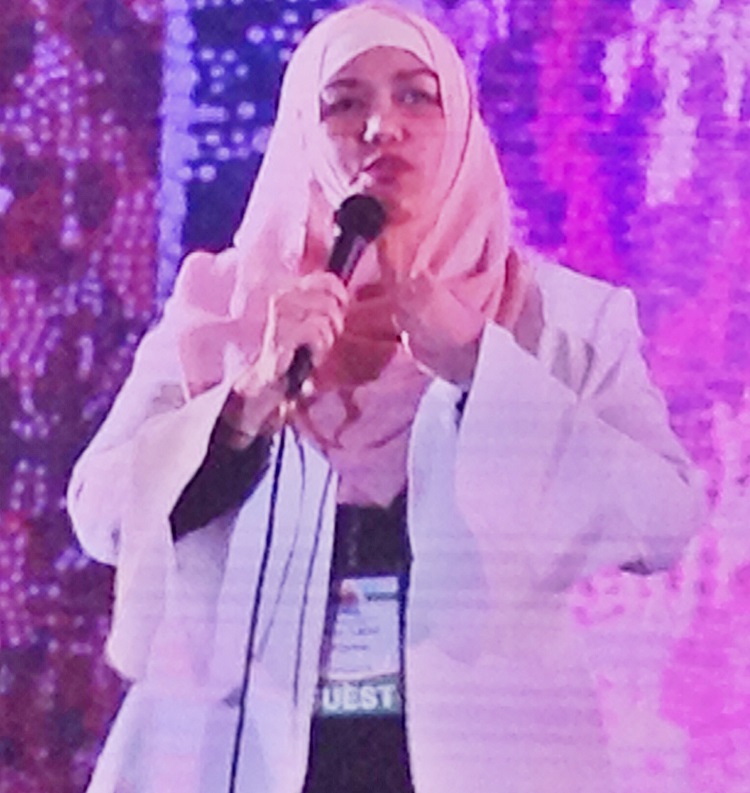
VULNERABILITY AND COURAGE. ARMM executive secretary Atty Laisa Masuhod Alamia shares her powerful reflections on the need for "vulnerability" to promote peace. Screencapped from the event's official video.
Alamia then challenged the participants to "start the consciousness to be vulnerable and forgive oneself and others."
"Be vulnerable, have courage, be kind, forgive," she added. For her, those who are vulnerable have the courage to be imperfect.
She pointed out that the conflicts did not just happen instantly. They were effects of the choices made in the past that led us where the country is now.
Being educated in a Jesuit institution, Ateneo de Zamboanga, Alamia said, "I became more a Muslim when I studied in a Catholic school." She stressed on the crucial role of all CEAP schools, of coming together as a community and counter extremism by providing quality education and empowering members to be involved in various civic engagements and engage in collaborative works.
This idea of vulnerability was well connected with the sharing of Dr Jose Jowel Canuday on how Mindanao has been "underrepresented, misrepresented, and unrepresented" in the textbooks.
He argued that many Filipinos "have a faint idea of a common history," which has caused the disparity between Christians and Muslims. He added that some educational policies were formulated for a particular worldview, which in turn causes the "homogenization of cultures." But he emphasized that "Catholic educational institutions can be key drivers to end biases and prejudices."
The “Writing Mindanao, Righting Mindanao” project through the Mindanao-Sulu timeline that Dr Galace shared helped in providing the sequences of events to better understand the historical Mindanaoan narrative.
Using the Justice Framework, this project aims to expand the dialogue movement to weave a shared collective history. The challenge now is to provide a systematic approach to integrating the discussion of the timeline in the K-12 curriculum.
Another challenge posed in the convention is given to all educators. According to CEAP legal counsel lawyer Joseph Noel Estrada, educators play a crucial role in advocating for peace. Teachers should "avoid suspicions and impressions of immorality." For teachers, "good moral character is a continuing requirement," he added. Thus, educators should walk what they preach and make sure that students develop to be peace advocates.
There is also a need to resolve the conflict by establishing strong and interrelated communities. According to Bai Rohaniza Sumndad-Usman, one of the session speakers and a former commencement speaker of the XUJHS, "Those who do not feel a community are mostly attracted to the negative elements of the society." She added that by appreciating our diversity, "We are the face of the other."
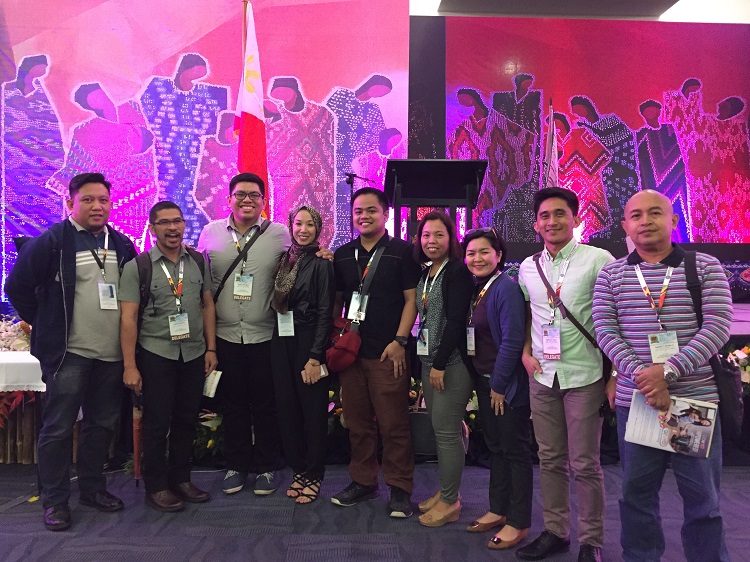
XAVIER ATENEO. XU's Basic Education contingent poses with Bai Rohanisa Sumndad-Usman, fourth from left: (L-R: Former JHS reagent Fr Dahonan SJ, Dr Gawahan, Macagba, Usman, Aranas, Engr Hibaya, Lozano, Tariga, and Galopio). Contributed photo.
In sum, the convention provided an avenue for the CEAP members answer the call to improve our practices and approaches and to come together to work towards building a peaceful and more humane society.
As Dr Jasmin Galace, one of the speakers from Miriam College, puts it powerfully, "When we do nothing, we promote the status quo."∎